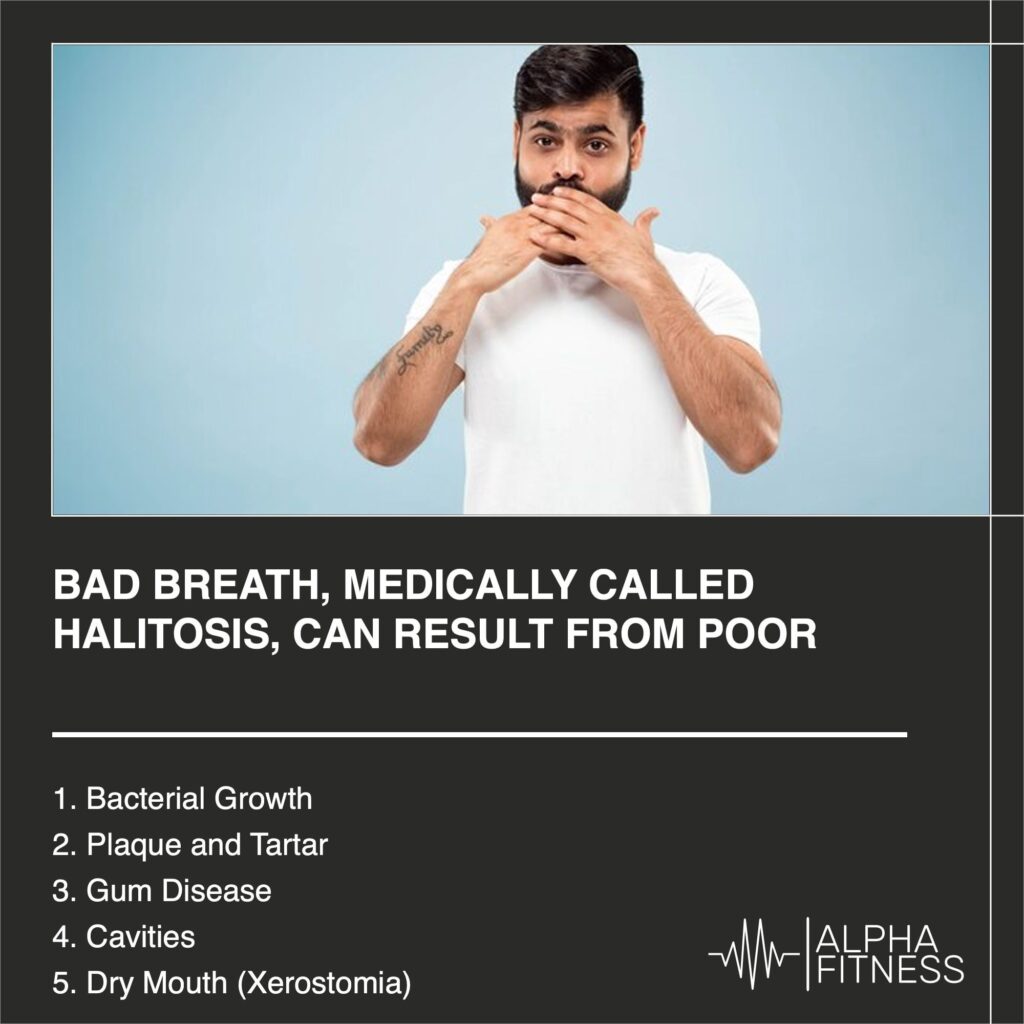
Below is a list of useful links:
- How to get rid of cavities?
- Is the use of cloves can reduce bad breath?
- Get a healthy gum to regular use of mouthwash
- Milk helps strengthen teeth
- Consume calcium can strong enamel
That’s correct. Bad breath, or halitosis, can indeed result from various factors related to poor dental health. Here are some common reasons for bad breath associated with dental issues:
Bacterial Growth: The mouth contains naturally occurring bacteria, and when you don’t practice proper oral hygiene, these bacteria can proliferate, leading to the release of foul-smelling compounds that cause bad breath.
Plaque and Tartar: Poor dental hygiene can lead to the buildup of plaque and tartar on teeth. These substances can trap bacteria and food particles, causing an unpleasant odor.
Gum Disease: Gingivitis and periodontitis are gum diseases that result from bacterial infections. These infections can produce a foul smell in the mouth. In advanced stages, periodontitis can even lead to the loss of teeth.
Cavities: Tooth decay or cavities can harbor bacteria, which release acids that cause bad breath.
Dry Mouth (Xerostomia): Saliva helps cleanse the mouth and maintain a neutral pH. When you have a dry mouth, either due to medications, certain medical conditions, or dehydration, bad breath can occur because there is not enough saliva to wash away food particles and bacteria.
Food Choices: Eating strongly flavored or aromatic foods like garlic, onions, and spices can temporarily cause bad breath. These odors can linger until the food is completely digested and eliminated from the body.
Tobacco Use: Smoking or using tobacco products not only leads to bad breath but can also increase the risk of gum disease and other oral health issues.
To address bad breath caused by poor dental health, it’s crucial to maintain good oral hygiene habits, which include:
Brushing your teeth at least twice a day, preferably after meals.
Flossing daily to remove food particles and plaque from between teeth.
Using an antimicrobial mouthwash to help kill bacteria.
Regular dental check-ups and cleanings to identify and address dental issues.
If bad breath persists despite good oral hygiene, it’s essential to consult with a dentist or healthcare professional to rule out any underlying medical conditions that could be contributing to the problem. In some cases, persistent bad breath may be a sign of an underlying health issue beyond dental concerns.



